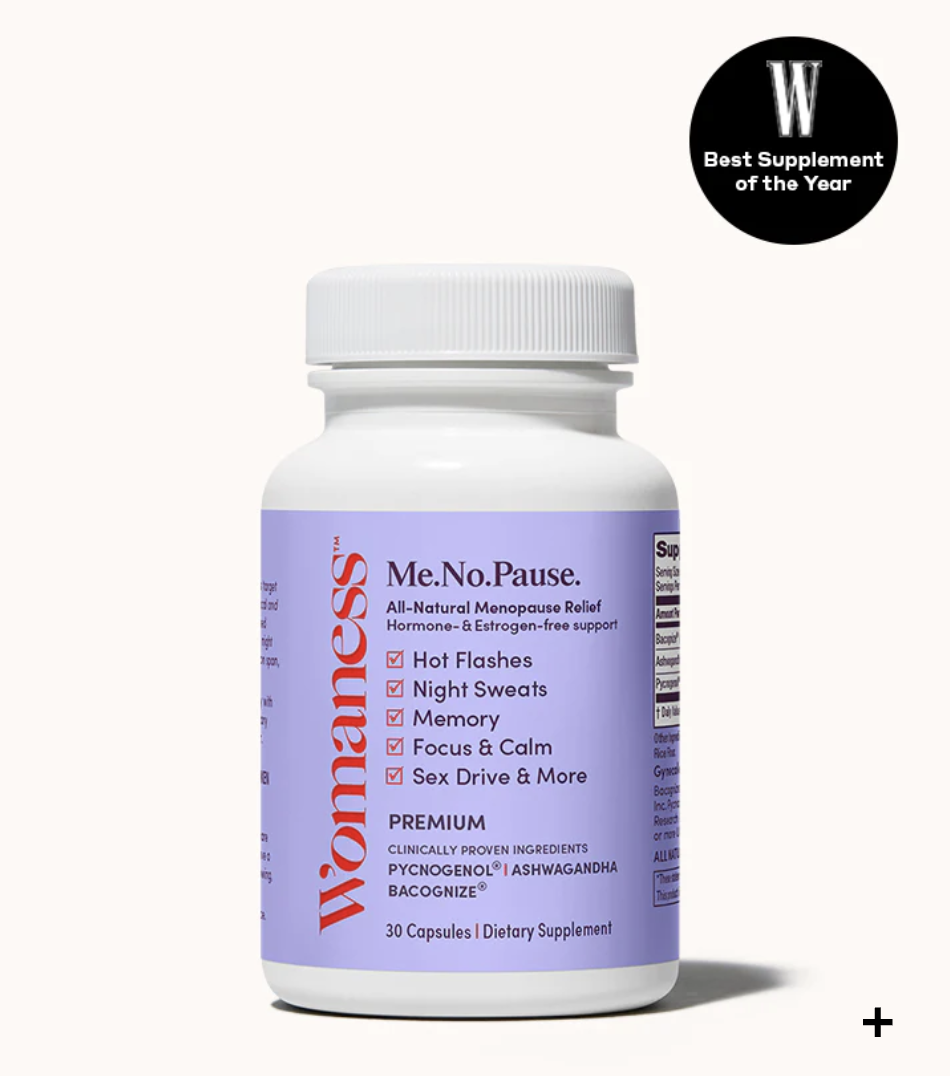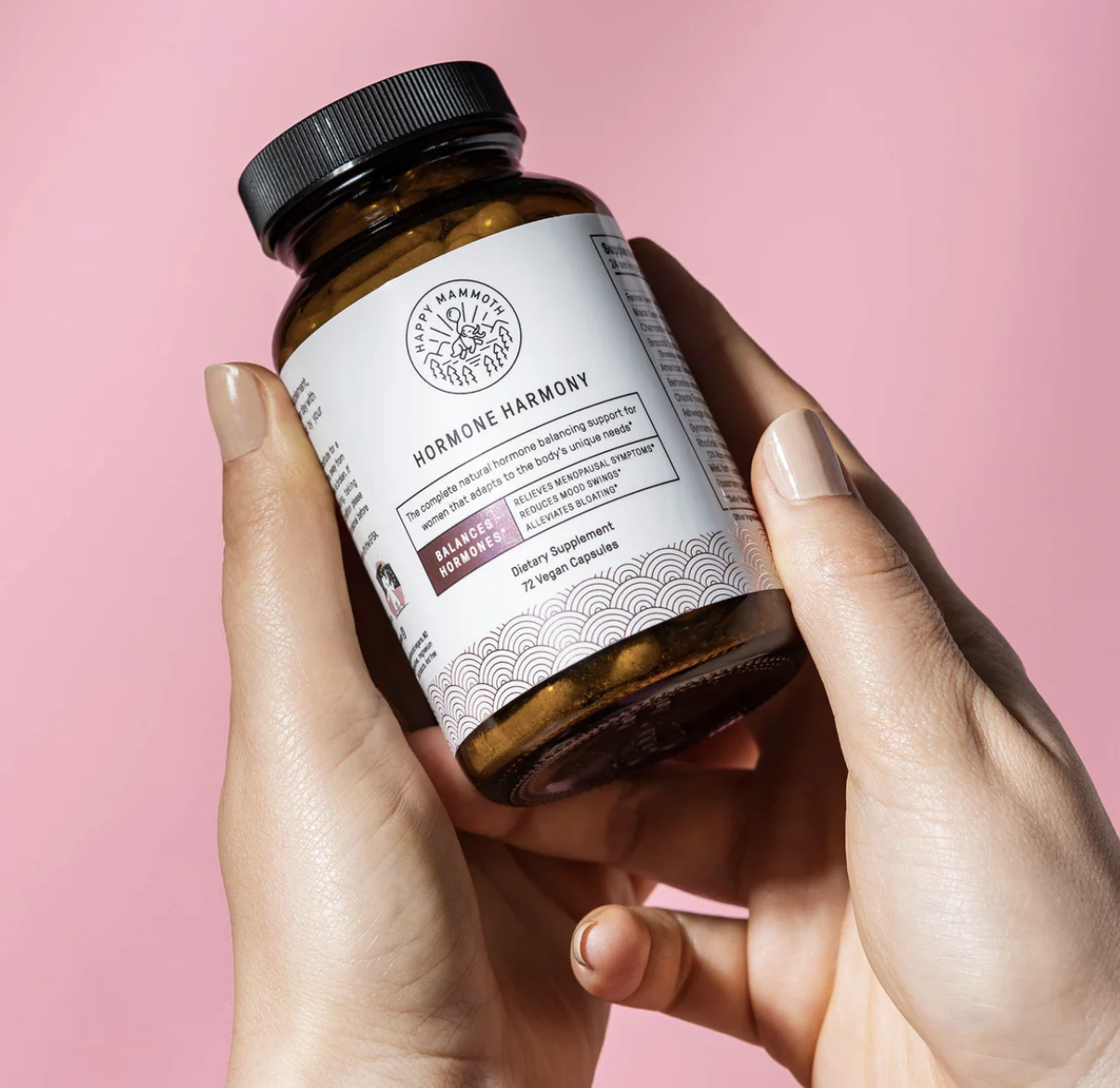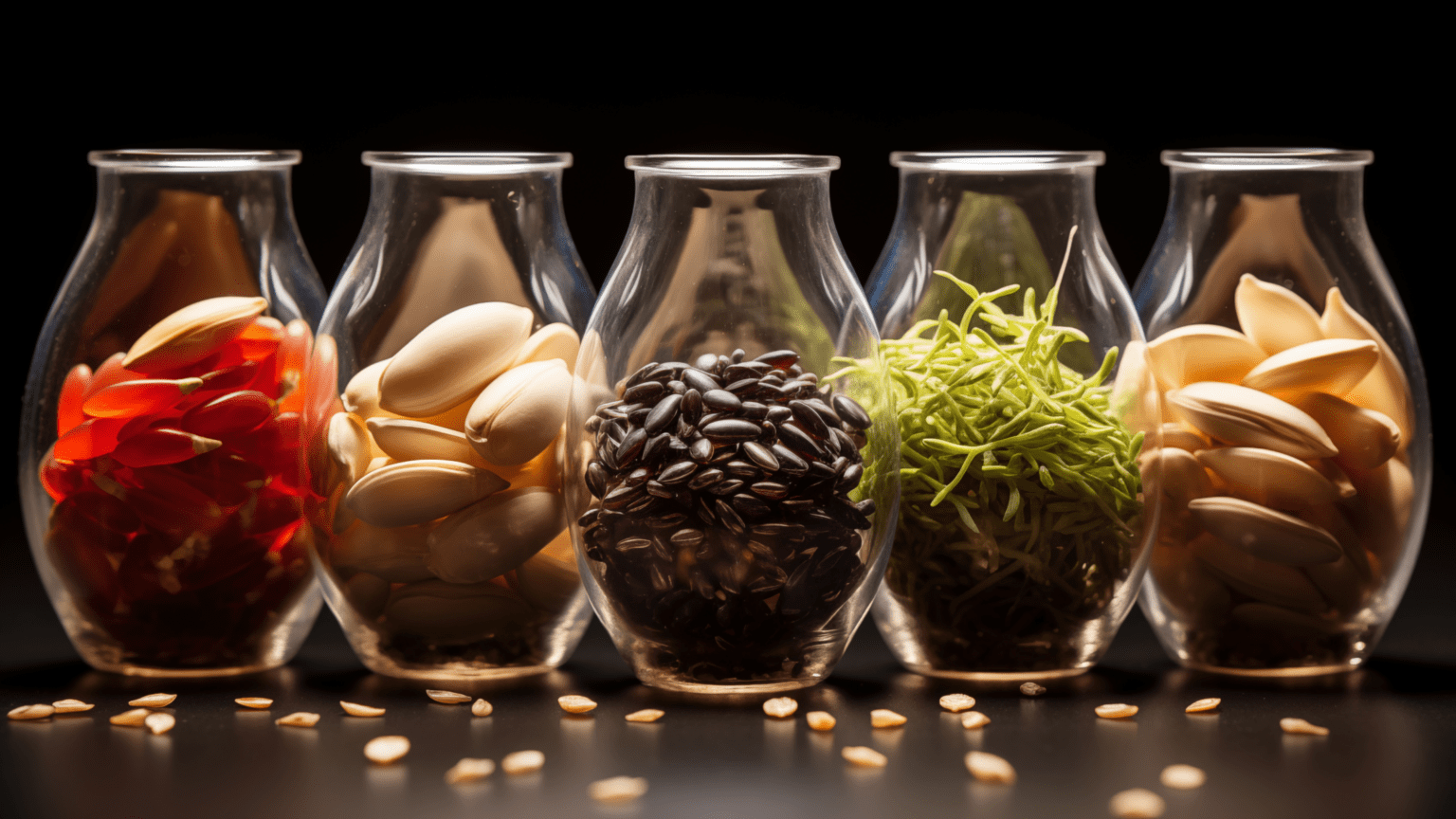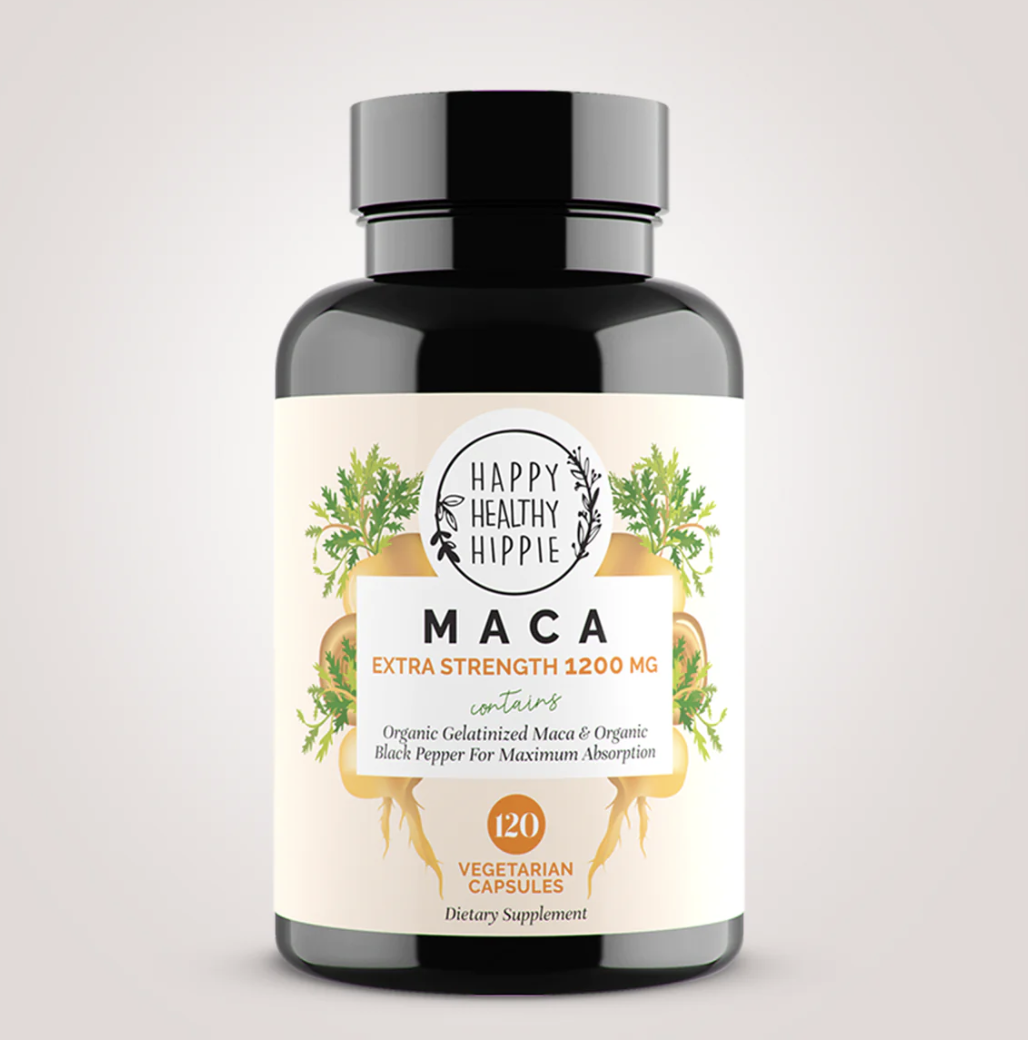If you’re a postmenopausal woman experiencing hot flashes, you’re not alone. Hot flashes are a common symptom of menopause, caused by low levels of estrogen in the body. While hormone replacement therapy (HRT) can be an effective treatment for hot flashes, it’s not for everyone. If you’re looking for natural ways to manage your symptoms, consider tracking your symptoms and adding estrogen-rich foods to your diet.
Dietary Choices to Support Menopause
As you go through menopause, you may experience a range of symptoms, including hot flashes, night sweats, and low levels of estrogen. One way to manage these symptoms is by making dietary changes that support your body during this transition. In this section, we’ll explore some of the best foods to eat during menopause and how they can help you feel your best.

Me-No-Pause
Just one pill a day helps with more than six symptoms, like hot flashes, night sweats, brain fog, focus, calm, & sex drive.
Phytoestrogen-Rich Foods
Phytoestrogens are naturally occurring plant compounds that can weakly mimic the effects of estrogen. While they are not as potent as synthetic or natural estrogen, they can bind to estrogen receptors in the body and help mitigate some of the symptoms associated with menopause.
The two main types of phytoestrogens are isoflavones and lignans, found in various plant-based foods. Studies suggest that these compounds may:
- Potentially reduce the risk of breast cancer due to their mild estrogen-like effects.
- Reduce the frequency and severity of hot flashes.
- Support bone health by slowing down bone density loss.
- Improve heart health by lowering cholesterol levels.
Top Estrogen-Rich Foods for Menopause
Incorporating a variety of foods rich in phytoestrogens can help balance hormones naturally. Below are some of the best options to include in your menopause-friendly diet:
Soy and Soy Products
Soybeans are among the richest sources of isoflavones, a potent type of phytoestrogen. Popular soy-based products include:
- Tofu: Versatile and rich in protein, it can be added to stir-fries, soups, or salads.
- Soy milk: A dairy alternative that can be used in smoothies, coffee, or cereal.
- Edamame: Boiled or steamed young soybeans make for a nutritious snack.
Tip: Opt for non-GMO soy products for the highest nutritional quality.
Flaxseeds
Flaxseeds are a powerhouse of lignans, another type of phytoestrogen. These tiny seeds are also rich in omega-3 fatty acids, which support heart health—a critical concern for postmenopausal women.
How to Use:
- Add ground flaxseeds to smoothies, oatmeal, or yogurt.
- Sprinkle them over salads or bake them into bread and muffins.
Legumes
Legumes such as lentils, chickpeas, and black beans are excellent sources of isoflavones and other nutrients like fiber and protein.
How to Include:
- Use chickpeas to make hummus or roast them for a crunchy snack.
- Add lentils to soups or salads for a hearty, nutritious meal.
Whole Grains
Whole grains like oats, barley, and quinoa contain lignans and offer additional benefits such as improved digestion and steady blood sugar levels.
Ideas:
- Start your day with a bowl of oatmeal topped with flaxseeds and fresh fruit.
- Use quinoa as a base for salads or side dishes.
Seeds
In addition to flaxseeds, other seeds such as sesame and sunflower seeds are good sources of lignans. They also provide essential nutrients like calcium, magnesium, and zinc.
Usage:
- Sprinkle sesame seeds on stir-fries or sushi rolls.
- Add sunflower seeds to trail mixes or baked goods.
Nuts
Walnuts, almonds, and pistachios contain phytoestrogens and healthy fats, which can support overall health during menopause.
Snack Ideas:
- Enjoy a handful of nuts as a mid-day snack.
- Add them to granola or mix them into yogurt.
Cruciferous Vegetables
Broccoli, Brussels sprouts, and kale are rich in phytoestrogens and other beneficial compounds like sulforaphane, which supports detoxification.
Preparation:
- Steam broccoli as a side dish or toss it into a stir-fry.
- Make a kale salad with nuts and seeds for a nutrient-packed meal.
Berries
Berries such as strawberries, raspberries, and blueberries contain lignans and antioxidants that combat oxidative stress.
Serving Suggestions:
- Add fresh berries to smoothies or oatmeal.
- Enjoy them as a dessert with a dollop of Greek yogurt.
Dried Fruits
Dried fruits like apricots, prunes, and dates are convenient sources of phytoestrogens, though they should be consumed in moderation due to their high sugar content.
Ideas:
- Use chopped dried fruits in trail mix or as a topping for salads.
- Enjoy them as a natural sweetener in baked goods.
Herbs and Spices
Certain herbs and spices, such as garlic, fennel, and thyme, also contain phytoestrogens and can enhance the flavor of meals.
Use:
- Add garlic to roasted vegetables or pasta dishes.
- Brew fennel tea to ease bloating or digestive discomfort.
Balancing Nutrients for Bone Health
Speaking of bone health, it’s important to make sure you’re getting enough calcium and vitamin D in your diet. These nutrients are essential for maintaining strong bones and can help prevent osteoporosis, a condition that can lead to fractures and other complications. Some of the best foods for bone health include dairy products, whole grains, and fatty fish like salmon.
In addition to calcium and vitamin D, it’s also important to incorporate healthy fats into your diet. Omega-3 fatty acids, in particular, have been shown to have a range of health benefits, including reducing inflammation and improving heart health. Fatty fish like salmon and sardines are a great source of omega-3s, as are nuts and seeds like walnuts and chia seeds.
Foods to Avoid During Menopause
While there are plenty of foods that can help alleviate menopausal symptoms, there are also some foods you should avoid. For example, alcohol and caffeine can both trigger hot flashes and night sweats, so it’s a good idea to limit your intake of these beverages. Additionally, processed foods and sugary snacks can disrupt hormone balance and lead to weight gain, which can exacerbate menopausal symptoms.
Lifestyle and Alternative Therapies
Exercise and Weight Management
Maintaining a healthy weight and staying active is an important part of managing menopausal symptoms, including hot flashes and night sweats. Exercise can help regulate hormone levels and improve bone health, which is important for postmenopausal women. Aim for at least 30 minutes of moderate exercise most days of the week. This can include activities such as brisk walking, cycling, or swimming.
In addition to exercise, managing your weight can also help alleviate menopausal symptoms. Being overweight can lead to higher levels of estrogen, which can worsen hot flashes and other symptoms. A plant-based diet rich in whole grains, cruciferous vegetables, and healthy fats can help you maintain a healthy weight and provide health benefits.
Natural Supplements and Herbs
Many women turn to natural supplements and herbs to help manage menopausal symptoms. Some of the most popular natural remedies for hot flashes and night sweats include soy products, flaxseed, black cohosh, and red clover.
Black cohosh has been used for centuries to treat menopause symptoms and is thought to have anti-estrogenic effects. Red clover is another herb that contains natural estrogen-like compounds known as isoflavones.

Hormone Happy
Contains a powerful blend of plant extracts shown to relieve symptoms of menopause.
While natural supplements and herbs can be helpful for managing menopause symptoms, it’s important to speak with your healthcare provider before taking any new supplements or herbs. Some supplements can interact with medications or have unwanted side effects.
In addition to supplements and herbs, lifestyle changes such as acupuncture, meditation, and yoga can also be helpful for managing menopausal symptoms. These practices can help reduce stress and promote relaxation, which can help alleviate hot flashes and night sweats.
Things to Keep in Mind
While phytoestrogen-rich foods are generally safe, it’s essential to consume them in moderation. Over-reliance on these foods without a balanced diet may lead to nutritional imbalances. Additionally:
- If you have a history of estrogen-sensitive conditions, consult your healthcare provider before significantly increasing your intake of phytoestrogens.
- Pair dietary changes with other healthy habits, such as regular exercise and stress management, for optimal results.
Estrogen-rich foods offer a natural, accessible way to manage menopause symptoms and support overall health. By incorporating soy products, flaxseeds, legumes, and other phytoestrogen-rich options into your daily meals, you can take charge of your well-being during this transformative phase of life.
Start small by adding one or two of these foods to your diet and gradually expanding your choices. With time, you’ll find a balanced approach that not only alleviates menopause symptoms but also promotes long-term health and vitality.







